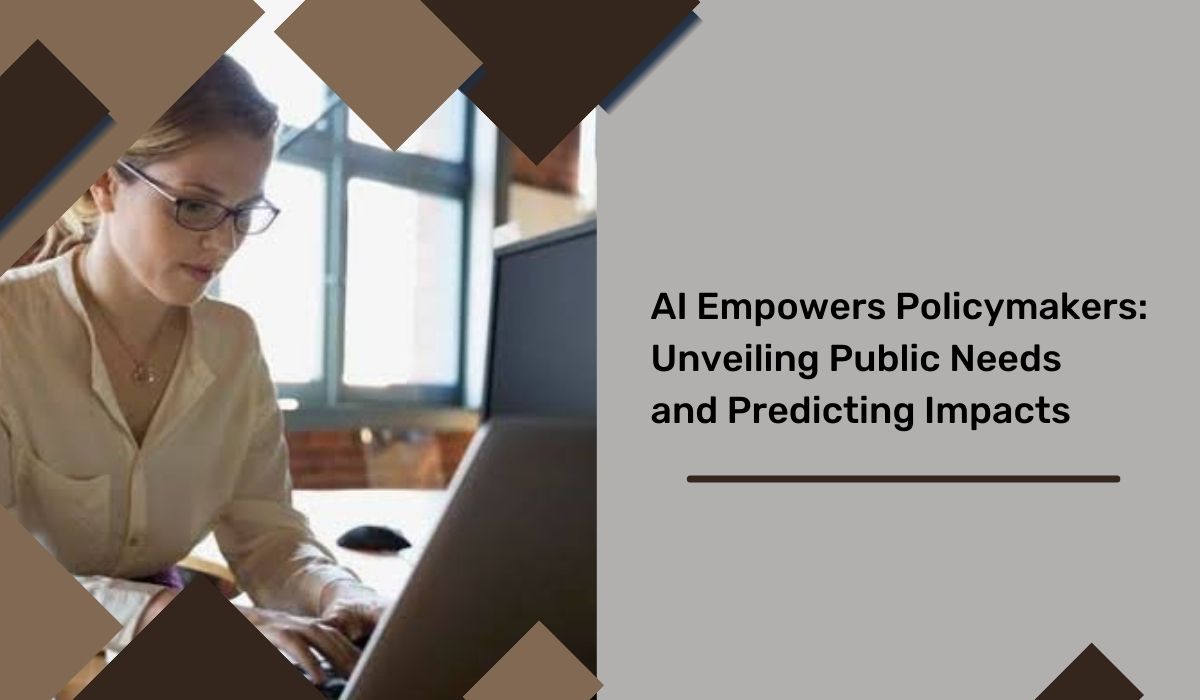
The task of policy formulation has long been challenged by the sheer scale of its population and the complexity of its needs. Traditional methods, constrained by fragmented data and limited citizen engagement, often fall short of addressing the evolving demands of the nation's democracy. However, the emergence of Artificial Intelligence (AI) is poised to revolutionize policymaking, offering a pathway to more inclusive and responsive governance.India's democratic process, while vibrant during elections, tends to lose momentum in between, leaving policymaking largely inaccessible to the average citizen. This lack of ongoing engagement results in a reactive approach to policy formulation, with the majority of government schemes primarily addressing existing issues rather than proactively anticipating future needs.
Recognizing this challenge, there is a growing realization that AI can bridge this gap, enabling policymakers to tap into a wealth of data and insights for more forward-thinking strategies. The traditional methods of policymaking struggle to cope with the vast amount of data available, often lacking the analytical capabilities to extract meaningful insights. However, the advent of AI and machine learning offers a ray of hope, promising to unlock the true potential of data analysis. With AI tools, policymakers can now analyze large datasets at lightning speed, uncovering hidden patterns and citizen sentiments from diverse sources such as social media discussions and regional language forums.One of the key challenges in policymaking has been the limited engagement of citizens, particularly marginalized communities and young voices.
AI-powered platforms have the potential to revolutionize citizen engagement by facilitating dialogue through interactive surveys, chatbots, and online polls. These platforms not only collect feedback but also ensure wider and more inclusive participation, giving every voice a chance to be heard. Beyond just collecting feedback, AI holds the potential to predict future trends and needs, empowering policymakers to develop proactive strategies. By analyzing data and forecasting challenges in real-time, AI-powered platforms can help address issues before they escalate into crises, thus shaping policies based on anticipatory insights rather than reactive measures.
India is already taking significant strides in leveraging AI for policymaking and citizen engagement. Initiatives like the MyGov Saathi App and AI-powered chatbots in various cities are streamlining governance processes and improving citizen satisfaction. Moreover, programs like NITI Aayog's "AI for All" initiative further underscore the country's commitment to harnessing AI for social good across sectors such as agriculture, healthcare, and education. While the potential of AI in policymaking is immense, it's crucial to ensure responsible and inclusive adoption. Ethical considerations, including data privacy, transparency, and human oversight, must be prioritized to build trust and mitigate risks. Additionally, efforts to bridge the digital divide through initiatives promoting internet access and digital literacy are essential to ensure that AI-driven policymaking benefits all segments of society.